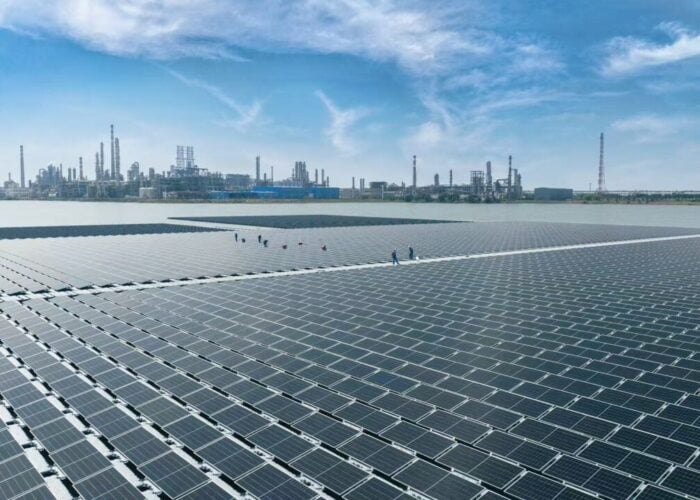Polysilicon manufacturer Wacker Chemie is to lose nearly 7% of its current global workforce over the next three years, in a bid to shave costs following a year of losses in the tens of millions.
On Thursday, the Munich-headquartered firm shared plans to let go more than 1,000 staff by the end of 2022 as part of an “efficiency” programme, meant to unlock annual savings of €250 million (US$270 million) for the firm.
Unlock unlimited access for 12 whole months of distinctive global analysis
Photovoltaics International is now included.
- Regular insight and analysis of the industry’s biggest developments
- In-depth interviews with the industry’s leading figures
- Unlimited digital access to the PV Tech Power journal catalogue
- Unlimited digital access to the Photovoltaics International journal catalogue
- Access to more than 1,000 technical papers
- Discounts on Solar Media’s portfolio of events, in-person and virtual
IWacker said the job losses would impact administrative staff and those working under “indirect, non-operational functions of” business divisions. Eight-in-ten dismissals will take place in Germany, home to around 10,000 of the firm’s 14,500 global employees.
The layoffs are part of Wacker’s efforts to turn its business around after recording EBITDA losses of €55 million (US$60 million) in 2019. The so-called ‘Shape the Future’ plan is meant to rebuild Wacker’s edge as it braces for “tomorrow’s challenges”, CEO Rudolf Staudigl said.
“We are preparing for a harsher competitive environment – both in our polysilicon business and at our chemical divisions,” said Staudigl, who joined Wacker in 1983 and gradually rose through the ranks until his appointment as group-wide CEO in May 2008.
According to Wacker, its workforce will be engaged to ensure layoffs take place in a “socially responsible manner”. From severance packages to retirement and semi-retirement plans, various options will be offered to staff to make sure there is “no need” for compulsory dismissals.
US-China trade reprieve brightens muted poly outlook
For Wacker, the prospect of job losses looks set to open a new chapter roughly a century after its foundation by Dr Alexander Wacker. From the first factory he launched in 1917, the firm has grown to manage 24 sites worldwide, with 70% of revenues coming from silicon products.
Over at its polysilicon division – which started ramping up sales to PV buyers around 2000 – the signs of a downturn have piled in recent times. Updates for Q1 2019 and Q2 2019 anticipated a year of EBITDA slumps, confirmed by the reports of full-year €55 million losses last month.
Throughout the months of decline, the firm attributed the losses to industry dynamics including low polysilicon prices and market swings in China. The major slowdown of PV roll-out seen in the Asian superpower has, Wacker argued, crippled demand for its polysilicon products.
In addition, the group has laid part of the blame on Beijing’s subsidies for Chinese polysilicon rivals. Late last year, CFO Tobias Ohler directly linked China’s state support to a €750 million charge (US$810 million) Wacker had to take, amid production write-downs in Germany and the US.
“The Chinese government is subsidizing this expansion not only with loans and incentives, but also by providing polysilicon producers there with coal-generated electricity at extremely favorable prices,” Ohler said. “We have adjusted our projections for the coming year accordingly.”
The firm’s US polysilicon production lines – including the US$2.5 billion Tennessee factory launched in 2016 – may yet benefit from a recent easing of US-China trade tensions. A deal sealed last month will see China take on greater volumes of US poly exports, among other products, although details have yet to be disclosed.
Polysilicon production has rapidly expanded in China as it plans to be self-sufficient in the key raw material for the PV and semiconductor industries. Advanced and large-scale manufacturing plants have enabled China to drastically reduce polysilicon production costs with newer entrants such as Daqo New Energy and Tongwei Group leading cost reductions and capacity expansions.






